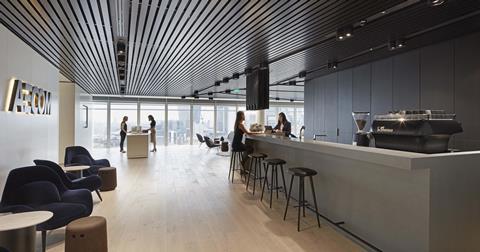Building’s Top 150 survey shows two-thirds of firms have expanded, with three-quarters set to hire more staff

See Building’s top 150 consultants - 101st-150th here. See Building’s top 50 project managers here. For full tables, including Building’s Top 150 Consultants, see www.building.co.uk tomorrow.
Three-quarters of the construction industry’s biggest consultants plan to hire more staff in the coming year, despite growing worries about big-ticket schemes being stalled and the unknown effects of Brexit.
Building’s latest annual survey of the top 150 architects, engineers, surveyors and project managers reveals that more than two-thirds of firms have grown overall staff numbers, with average headcount growth exceeding 7%.
And more than nine out of 10 firms improved the pay of their staff in the past year, as companies shrugged off concerns about falling workloads caused by the outcome of Brexit.
“People thought 2018 was going to be the year it all turned, and it didn’t”
Andrew Henderson, Ramboll
Andrew Henderson, executive director for buildings at engineer Ramboll, which this year gained almost 100 chartered staff, putting the firm into the consultants’ top 10 for the first time, said: “People thought 2018 was going to be the year it all turned, and it didn’t. We don’t see things changing at the moment and we’re going in to 2019 ready to face Brexit head on.”
And James Clark, founding partner of 115-strong London-based quantity surveyor Core Five, says: “We’ve just had our best year to date.”
Adrian O’Hickey, senior partner at Ridge, said: “We’re growing at a significant pace, so my focus is to maintain culture, quality of service delivery and keep growth sustainable.”
But Core Five’s Clark said consultants were beginning to sense Brexit uncertainty: “The market is at that point where it’s on the cusp of turning.”
He added: “These are uncertain times. With all of the political uncertainty, investment decisions get pegged back through caution. It’s not everybody, but there is a slight reluctance from clients to make decisions on projects.”

A number of the biggest firms including Mott MacDonald and Arcadis have carried out Brexit contingency planning, while some smaller firms such as TowerEight are looking at opening an office in Europe once the UK leaves the EU.
Arcadis’ UK chief executive Mark Cowlard said: “We’ve spent a long time looking at what’s the risk in each sector and, vitally, how can we mitigate this by identifying opportunities. Our overseas resource centres give us resilience, as a lot of what we do can be done from anywhere in the world. My sense is that we will continue to grow next year, but at a slower rate.”
Firms are also worried the government is taking its eye off the ball on pressing ahead with big-ticket projects, because it is bogged down with Brexit negotiations.
David Barwell, UK chief executive of engineering giant Aecom, said: “Government is distracted [… There is] uncertainty about the shape of government, which causes projects to be pushed out.”
Building’s survey also revealed that the number of fee-earning technical staff in the top 150 firms has risen by 18% since 2017, and the number of chartered staff by 9%.




























No comments yet